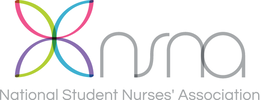Participate in Ethics and Governance Projects
Values and ethics are at the heart of any profession. Nurses are highly regarded as the most ethical of the health professions according to Gallop Polls for the past 19 years. NSNA's core values and Code of Ethics guides professional comportment and is foundational to forming a professional identity in nursing. Governance structures provide for continuity of organizations and access to democratic decision making. The shared-governance model that NSNA teaches is fundamentally the same as that used in non-profit, for-profit and healthcare agencies. As NSNA Leaders, students learn to practice essential leadership skills by participating in the NSNA Ethics and Governance projects.
Ethics and Governance Project Activities

- Establish an Ethics and Governance Committee, or;
- Serve as a member of the school chapter or state Ethics and Governance Committee Team (i.e., Committee; Board of Directors/Executive Board).
- Accomplish the goals and objectives of the Ethics and Governance Committee.
- Incorporate the 4 signposts of Professional Identity in Nursing into your leadership formation.
- The Value and Ethics guide our conduct as students and professional nurses.
- The Knowledge of Core Values plus the Code of Ethics guides us to analyze and apply critical reflection of our experiences based on scientific evidence.
- Leadership inspires us as leaders to motivate others to learn about and practice the Core Values and Code of Ethics as we form our professional identity in nursing.
- Professional Comportment – as nursing students we learn how to think, act and feel like a nurse, we demonstrate and apply Core Values and Ethics in our evolving professional identity.
By participating in this activity, you will be able to:
|
Rachael Schmoll, 2022-2023 Vice President and Chair, Ethics and Governance Committee speaks during the 2022 NSNA Leadership U Summer Summit.
|
|
Ethics and Governance Projects Learning Objectives:
- Plan and implement an Ethics and Governance Projects;
- Determine/select one or two relevant ethics and governance issues related to NSNA Resolutions to address;
- Utilize the NSNA Guidelines for Planning Ethics and Governance to plan projects;
- Learn about the topics and explore how other student and nursing organizations that are addressing these issues;
- Articulate the outcomes expected and evaluate the project to determine if outcomes were accomplished;
- Present written and verbal reports of progress made toward reaching committee's goals;
- Articulate the outcomes expected and evaluate the project to determine if outcomes were accomplished;
- Practice collaboration among peers, faculty, and community leaders.
Ethics and Governance Committee Responsibilities
- Review Resolutions relevant to Ethics and Governance that were passed at the school, at your state convention, and NSNA's Annual Convention.
- Identify two or three goals and a theme for the year.
- Become familiar with NSNA and state contests and applications.
- Read NSNA's Ethics and Governance Guidelines.
- Determine one or two topics related to Ethics and Governance to address for the semester or academic year; resolutions passed at the state and NSNA Annual Conventions are excellent reference sources.
- Plan a Ethics and Governance project based on the topics selected.
- Collaborate with other campus groups and community groups that are working on the same or similar issues.
- Communicate with state or school Ethics and Governance committee chairs.
- Publicize Ethics and Governance activities by providing news items for your school and state newsletters, post them on your school and state website.
- Implement the project.
- Evaluate the effectiveness of the project.
- Submit a project for the NSNA Ethics and Governance Awards.
For a list of attributes and competencies for future nurse leaders and managers, click here.
For a FREE version of the Leadership Assessment for Student Nurses, click here.
For a FREE version of the Leadership Assessment for Student Nurses, click here.
Copyright © 2024

